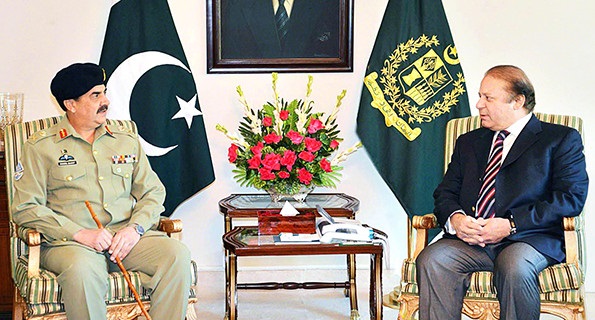Ask just any Pakistani and he or she will express dissatisfaction with the present state of affairs. There is realization that the quality of governance in the country is steadily deteriorating and the people’s problems are multiplying with every passing day. There is apprehension that the situation might reach a point where it could pose existential threat to the state. However, there is no consensus on how to arrest the trend towards decline. The people agree that the change for better should come, but differ on how to bring about the change. There are people who want to give democracy a chance. They contend that the answer to the flaws of democracy is more democracy. Free, fair and transparent general elections held regularly would, in their opinion, create sense of accountability in the elected representative and bring improvement in governance.

They hold army interventions, direct and indirect, as responsible for hindering the growth of democratic institutions and culture. According to them, the apparent economic prosperity and development under military regimes was largely foreign-aid based. The detractors of the above opinion consider military rule or ‘controlled democracy’ as better suited to Pakistan. They regard the eras of General Ayub Khan and General Pervez Musharraf as ideal when the country progressed economically and corruption was at its minimum. They think that the necessary conditions for success of democratic system - an educated population and a large middle class - are not present in the country. They believe that any number of elections would bring the same corrupt politicians to power. There is a third opinion that neither the civilian nor military rulers have done anything to improve the lot of the common people because of their vested interests. Military rulers have always taken feudal lords on board and formed political parties to derive strength from.
In their eyes, only transfer of power at the grass roots level is the solution. Time is not far away, they hope, when the have-nots would stand up for their rights leading to revolutionary change. Only a major upheaval or revolution, they think, will bring the real change. Without going into the merits of different viewpoints, one may point out that the present political crisis has brought about acute realization that the things cannot continue to be the same. If nothing is done, Pakistan may drift towards chaos and anarchy. Already we find pockets where extra-state actors have established their sway. It is Pakistan’s misfortune that in the past the military rulers who were in position to introduce drastic reforms lost time in persecuting their political opponents and making alliances with those who could help them in extending their stay in office. If another military take-over is to take place, it would be worthless if history is repeated. What we need is genuine accountability of corrupt elements and introduction of drastic economic reforms to change the power-equation in the society, leading to enlargement of the middle class and significant improvement in the conditions of down- trodden.